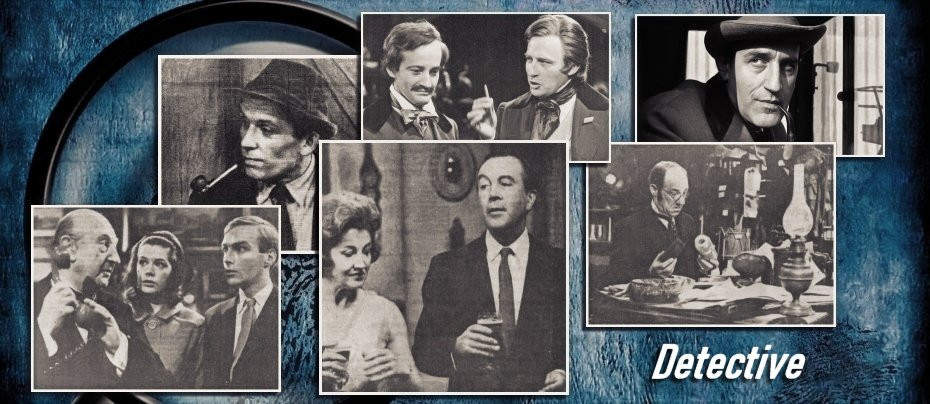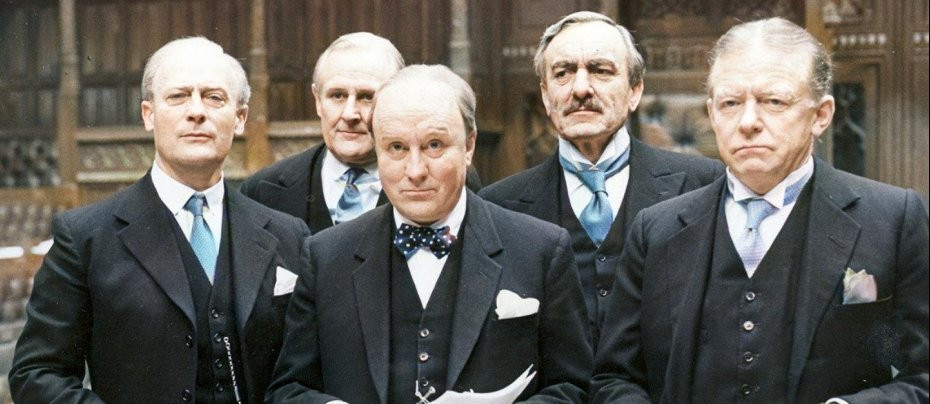
Russell Hunter
Russell Hunter enjoyed a long and varied career in theatre, film and television but a generation of fans best remembers him for his role as Lonely, the timid and smelly small-time thief and burglar and the only 'friend' of the cynical and lonely assassin Callan, who treated him with a mixture of disdain and sympathetic camaraderie, almost, but not quite, bordering on affection.
Hunter’s performance as Lonely was remarkable for its subtlety and depth. He conveyed the character’s fear, vulnerability and loneliness with his expressive eyes, nervous gestures and distinctive voice and even added touches of humour and humanity to the otherwise bleak and violent show. Next to Edward Woodward as the eponymous anti-hero, Russell Hunter created the second most important character in the series, his performance showcasing a deep sense of vulnerability and humanity, making Lonely a character that the audience could truly connect with, transcending the role from merely a supporting character to an integral part of the series' success. His portrayal of Lonely was described by one critic as "a model of character acting."
Born Russell Ellis in Glasgow on 18 February 1925, he spent his early years with his maternal grandparents in Lanarkshire because his father, who was unemployed, and his mother, who was a cleaner, were too poor to support him. He was reunited with his parents when he was 12 and did some acting as an amateur while serving an apprenticeship in a Clydebank shipyard. Turning professional in 1946, under the stage name Russell Hunter, he acted at Perth Rep and the Citizens' Theatre, Glasgow, and was due to appear in Sean O'Casey's play The Plough and the Stars at the first Edinburgh Fringe Festival, in 1947, when the Arts Council withdrew funding. Despite this last-minute setback, the play went ahead, becoming part of the inaugural Edinburgh Festival Fringe. The posters advertising it were altered from "Sponsored by..." to read "Eliminated by the Scottish Committee of the Arts Council." Hunter took part in no fewer than four plays at that first festival.
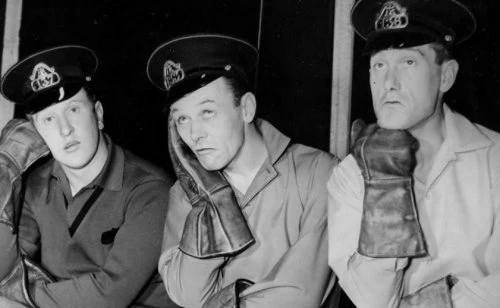
Hunter continued to work in repertory theatre and Scottish variety before making his film debut in 1950, appearing in two films; The Gorbals Story, about a young artist driven to murder as a result of the pressures of living in a Glasgow slum, and Lilli Marlene, a British war film aimed at the US market. He later joined Peter Hall's Royal Shakespeare Company. Pantomime was a firm favourite of Hunter's, and he joined the company that performed Howard and Wyndham's Wish for Jamie, the first original Scottish panto, to public acclaim in 1960. Five years later, he took the lead in Victor Carin's Servant O' Twa Maisters, which opened at the Royal Lyceum Theatre in Edinburgh.

After playing Costard in a BBC television production of Love's Labour's Lost (1965), Hunter was cast as Lonely in ITV's Armchair Theatre production of A Magnum for Schneider in 1967. Whilst the role of Lonely stayed with him for his whole life, at the same time, he started working closely with the playwright W Gordon Smith, who became a key figure in Scottish theatre for the next decade. Appearing at the Edinburgh Fringe once again, Hunter had been performing Cocky, a one-man show, written by Jack Ronder, about Henry Cockburn, a Scottish lawyer, judge and literary figure who served as Solicitor General for Scotland between 1830 and 1834. Hunter would later play the character in a broadcast by BBC Scotland. Smith, who was a BBC producer at the time, told Hunter: "That was no' bad. Now I'm going to write a play for you."

This turned out to be Jock, a celebrated one-man performance which explored the Scottish psyche through the musings of an angry old soldier. The actor Bill Paterson later recalled: "This confirmed Hunter as the definitive Scottish character actor; it was a one-man show, yet half of Scotland was on the stage."
Callan finished in 1972 but Hunter would play Lonely twice more; in the 1974 feature film and 1981’s Wet Job, which picked up the characters of Callan and Lonely years after they had parted company. Reunited, reluctantly, to carry out one last job for ‘Charlie’.
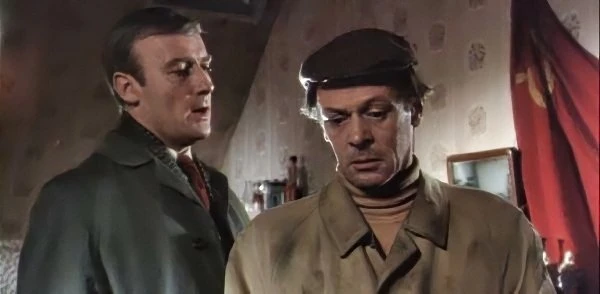
About playing the character, Hunter said; "I take more baths than I might have playing other parts. When Lonely was in the public eye I used only the very best toilet water and a hell of a lot of aftershave."
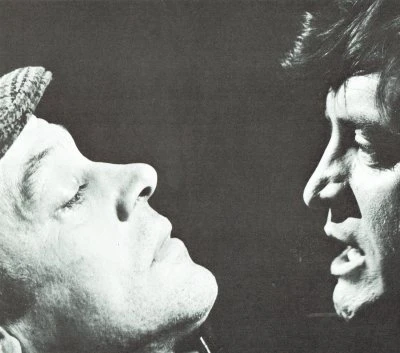
Throughout the 1970s and 1980s, Hunter was kept gainfully employed on television. He appeared in dramatic roles in Ace of Wands, The Sweeney, Dickens of London, Doctor Who (The Robots of Death), Minder, First Among Equals, Casualty and The Ruth Rendell Mysteries, and comedy with Tommy Cooper and in sitcoms such as Mind Your Language, Rule Britannia! and The Gaffer. Although he was seen less often in the nineties and the noughties, he worked constantly in theatre during that period. One of Scotland’s most talented and versatile actors, he “graced virtually every landmark of Scottish theatre for more than half a century”, one obituary noted upon his death in February 2004. Although in the advanced stages of cancer, Hunter's last theatrical stint was in the Reginald Rose play 12 Angry Men.
Despite being ill, Hunter received positive reviews as a priest in the film Skagerrak and for his appearance in the feature film American Cousins late in 2003, receiving the Special Jury Prize at the Savannah Film Festival in the United States, ending a career spanning six decades.
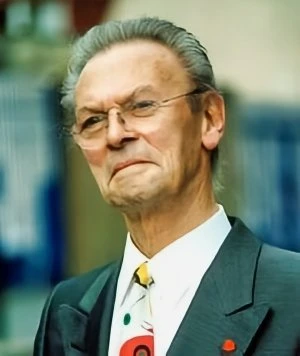
Despite his incredible talent and success, Hunter remained remarkably humble throughout his life. He was known for his down-to-earth nature and warm personality, qualities that endeared him to both his co-stars and the audience. His legacy continues to resonate with those who were fortunate enough to work alongside him, as well as the countless individuals whose lives he touched through his performances.
Russell Hunter's remarkable career left an indelible mark on the world of acting. His unforgettable portrayal of Lonely has secured his place in the pantheon of British television and ensures that his name will be remembered for generations to come. Through his talent, dedication, and undeniable charisma, he solidified his status not just as an actor, but as an icon of the entertainment industry.
Published on January 26th, 2024. Written by Marc Saul for Television Heaven.




